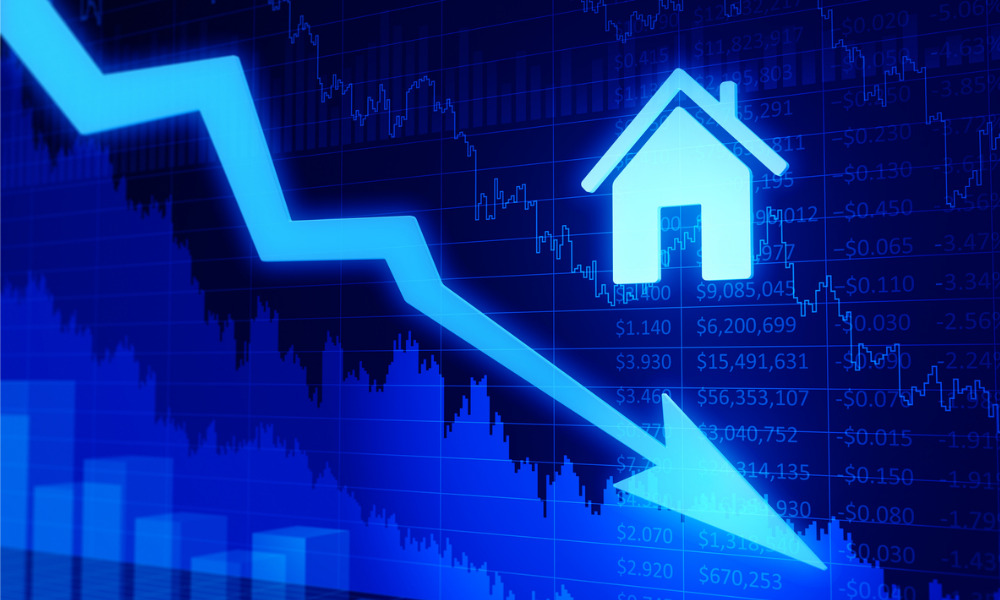The Bank of England’s decision to hike interest rates to a 15-year high is set to see mortgage payments rise for millions of homeowners.
On Thursday, the Bank confirmed UK rates will rise for the tenth time in a row, to 4% from 3.5, in a bid to control inflation after it reached a record 11.1% in October. The Bank has faced a tough call over what approach to take, as higher mortgage costs saw the housing market suffer five successive months of falls in property prices.
The IMF reported this week the UK would be the only G7 member to see their economy go backwards this year, with a likely 0.6% contraction. While this would usually lead to calls for interest rates to be cut, the current inflation rate of just over 10% is pushing the Bank to act on its mandate to bring it back towards its 2% target. Below we look at how the latest interest rate increase could impact the housing market for buyers and borrowers alike.
HOUSE PRICES
After big increases in 2022, the price of the average property in January was £258,297 - down 0.6 per cent on December, and well below the £281,000 figure from last year. House prices stalled in September, followed by monthly falls of 1.0% in October, 1.2% in November and 0.3% in December. Further falls are likely now the Bank of England has approved an interest rate rise for the tenth time in a row, as it will likely push mortgage rates up further.
Higher mortgage rates tend to push house prices down as people are less willing to borrow money. On Thursday, high street lender Santander warned house prices are set to tumble back to 2021 levels, and has set aside more cash for loan losses as it braces itself for a possible rise in the number of borrowers falling behind with repayments. The Spanish-owned group is forecasting a 10% fall in house prices this year as interest rate hikes dampen demand.
MORTGAGES
Mortgage rates offered by lenders jumped following the mini-Budget last year and borrowing costs have also been increasing as the Bank of England base rate has risen. This has resulted in a plunge in the number of mortgages being approved. The Bank reported on Tuesday that 35,000 were given the green light in December compared to 46,000 in November, the UK’s lowest since 2009. UK Finance estimates that some 715,000 borrowers on tracker mortgages will feel the pinch as interest rates rise again. It estimates householders will be paying around £588 more a year on average as a result of the Bank’s announcement.
In addition, the Office for National Statistics has predicted more than 1.4 million households are facing the prospect of interest rate rises when they renew their fixed-rate mortgages this year. A string of base rate hikes have taken place over the past year, but borrowers on fixed-rate mortgages were cushioned from their immediate impact. Analysts have said some may get a shock when they come to renew. Labour has said homeowners could face mortgage hikes of up to £14,000 a year as they come off low fixed-rate deals, adding to the squeeze on living standards.
Analysis by the party shows predicted annual increases in costs for a median house purchase at 80 per cent mortgage in every constituency in the UK.
WHAT DOES THE GOVERNMENT SAY?
Downing Street acknowledged the interest rate hike could be “difficult” for mortgage holders. The Prime Minister’s official spokesman said: “Inflation is the biggest threat to living standards in a generation, so we support the Bank’s action today to help us succeed in halving inflation this year. We will continue to take the difficult decisions needed to do everything we can to reduce inflation, including not funding additional spending or tax cuts through borrowing, which only serve to fuel inflation further and prolong the pain for everyone.”
The spokesman added: “This is a difficult time for mortgage holders in the UK. As the Chancellor has said, sound money and a stable economy are the best way to deliver lower mortgage rates and keep down the costs of mortgage payments. That’s why we are taking the necessary and responsible action to halve inflation, reduce our debt and get the economy growing.”

Martin Lewis' urgent warning to mortgage holders minutes after Bank of England's announcement
Money saving expert Martin Lewis has issued an immediate warning after the Bank of England's announcement. The Bank of England announced that the Monetary Policy Committee had voted at a majority 7-2 to raise interest rates, setting the bank rate at 4%. The increase follows another increase by 0.5% in December 2022, and is now the tenth consecutive interest rate hike.
Interest rates are now at their highest level since the recession in 2008, some 14 years ago. The Bank has decided to raise interest rates in a bid to control inflation as they aim to lower it to 2% - a target set by the government reports the MEN.
Also read: Martin Lewis issues final 'check today' warning to everyone with a UK passport
The announcement by the Bank of England was made at 12pm, and Martin Lewis gave his immediate reaction, issuing a warning to homeowners who may be affected. In a tweet sent out to his 2.1 million Twitter followers, Martin warned how the 0.5 percent interest rate rise could affect mortgage holders' monthly repayments. Martin tweeted: "Bank of England base rate up 0.5% pts to 4.0% - Variable/tracker rate repayment mortgages will rise c.£25/mth (£300/yr) per £100,000 of mortgage.
The money-saving expert said those on a variable rate mortgage - one that fluctuates in line with interest rates, could now be paying an extra £25 a month, equating to £300 a year, for every £100,000 of their mortgage. Martin advised that homeowners on a variable rate mortgage to use a mortgage calculator to check how much their repayments could go up by for a more accurate figure. He also confirmed that those who are on fixed rate mortgages won't be affected as he tweeted: "Existing fixes won't change. New fixed rates've already baked rises in."
Martin then gave advice on savings account amid the interest rate rise. He wrote: "Top paying easy access savings accounts will likely rise over the next few weeks. Most big bank savings will continue to pay diddly squat, so check, ditch & switch. Unlikely to see top fixed savings rise much, as this news was well-flagged & thus prob factored in."

House prices to slump 10%, warns Santander
House prices will fall by a tenth this year, Santander has warned as the lender braces for a rise in mortgage and loan defaults amid a darkening economic outlook. The high street lender said it expects UK house prices to fall back to 2021 levels in 2023 as rising interest rates hit demand for mortgage lending.
The UK arm of the Spanish bank also set aside £321m to cover bad loans as it warned that Britain is likely to face a recession, which could see customers fall into arrears. This compares with £233m of credit provisions being released a year earlier as Covid restrictions were lifted.
Santander said: “We expect house prices to fall back to 2021 levels over the year ahead as higher base rates dampen demand. The outlook remains uncertain as inflation has eroded real disposable income with the prospects of a recession ahead. These challenges for households and businesses are expected to continue into 2023 and could impact credit quality.”
Santander’s forecast that house prices will fall by a tenth comes after Lloyds and NatWest both predicted in October that prices were likely to tumble by 7% to 8% this year. The higher provisions for potential defaults weighed on the bank’s pre-tax profits, which rose just 2% to £1.89bn for 2022 despite rising interest rates.
Mike Regnier, chief executive of Santander UK, said: “The global economic environment and rising cost of living have presented challenges for many of our customers and clients. The end of 2022 saw a marked slowdown in mortgage lending and, with an uncertain economic outlook for 2023, we will continue to focus on a prudent approach to risk while we help people and businesses prosper.”
In December, Santander was fined £108m by the City watchdog after it found serious and persistent gaps in the bank’s anti-money laundering safeguards. Around £300m passed through Santander accounts over a five-year period, potentially by criminals taking advantage of its “inadequate” controls, the Financial Conduct Authority said.

